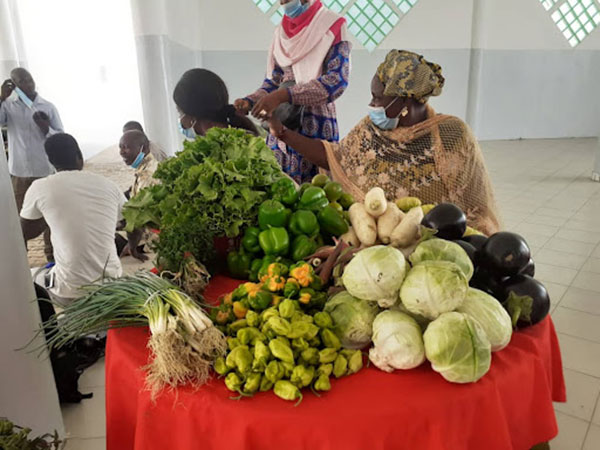The 1st consultation on food policies in Senegal, held yesterday at the initiative of CICODEV Africa and its partnerships via a webinar, was a forum for members of civil society to propose solutions to achieve a good food policy.
By Mamadou SAKINE – Yesterday, sociologist Professor Abdou Salam Fall called for a fund set up by the state, dedicated to local national food production, during the 1st consultation on food policies in Senegal, at the initiative of CICODEV Africa, in partnership with the Alliance for Food Sovereignty in Africa (Afsa) and Sos faim. The academic believes that this must be one of the priorities within civil society. He explains that all the actors of the whole chain have a lot of difficulties to access funds that allow them to make the necessary sustainable investments for the promotion of a sustainable and diversified food supply that respects food safety standards.
To achieve good sustainable food, Coumbaly Diaw, a consultant in sustainable food chains at the FAO, believes that we must start from the local to the global level, that is to say involve “immediately” the mayors. “Better than anyone else, mayors are more aware of the problems related to the food system in cities,” she said. She also pointed out a lack of communication between actors, decision-makers and members of civil society. Therefore, there is a need for clear frameworks for dialogue, she says. Thus, she proposes the creation of a network as a strategy to be implemented to have a good food policy. “The food issue is more operational than anything else. We must go to action,” said Khady Fall Tall. So, to go in the direction of this action desired by Ms. Tall, Professor Abdou Salam Fall finds the need to work on an awareness through a communication campaign. He is of the opinion that this also requires the introduction of food and nutrition education in schools from an early age. He also proposes the promotion of the modes of food of “our” territories based on “our” own products.
Previously, the Professor spoke about the points of “consensus” on food policies in Senegal. All actors, he said, agree that the country produces little. Yet the agro-sylvo-pastoral potential is very high. The factors that explain this are, among others, the difficulty of access to production factors. “What we produce is poorly preserved and poorly processed. We eat too much salt, too much sugar and too much fat”, but we also have too much food dependency. Referring to the “discrepancies”, he said that “there are huge problems with pesticides that promote high productivity, but in turn pose huge damage. The inputs that are available are more to the large producers, and often religious leaders, than to the family farm level”. Before mentioning the “strong” presence of supermarkets of large groups of foreign investors and conversely “the low” quality of local commercial.
Source:https://lequotidien.sn/ of August 4, 2021

